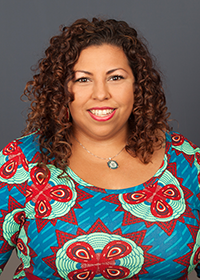Whether you stopped attending school because of finances, family problems, academic issues, or left because life just happened, you are not alone. A lot of students have had to drop out for a variety of reasons, you’ll find that it’s never too late to go back.
Here are a few things to help prepare yourself to go back to school and to make it a positive experience.
Think about your goals and what you want to accomplish. Usually, students who dropped out and come back to school perform better because they have had the school experience already. Think about what worked for you and what didn’t when you were in school before. If something didn’t work for you before, develop a plan to improve it so it doesn’t become an obstacle for you this time around. For example, if the issue was managing your workload, then coming up with a plan to manage your time better will be important. Determine what your career goals are so you pick the major that is right for you. You can discuss your goals with an admissions advisor to make sure you are in the correct program to fit your needs and taking the right courses to fulfill your degree requirements.
 How many hours will you take? Determine if you will be a full-time or part-time student. You may want to start off going part-time the first semester to get back on track and then decide if you will be able to manage being a full-time student going forward.
How many hours will you take? Determine if you will be a full-time or part-time student. You may want to start off going part-time the first semester to get back on track and then decide if you will be able to manage being a full-time student going forward.
Work/Life experience. If you left school and have been in a professional work environment or have military experience, speak with your academic advisor to see if you can earn credits outside of the classroom. Some schools may allow you to show your achievements or take a test to earn credits if you have experience in that field. If you have any work/life experiences you’ve learned while you were absent from the classroom, be sure to share those with your classmates or during class discussions.
Know your resources and use them. Going back to school may be a big change and adjustment in your life. Find your support system, whether it’s friends, family, classmates, or coworkers, so that you know who they are and don’t be afraid to ask for help. Be sure to use the resources your campus has for students. Tutoring centers on campus can help if you are struggling in a class or just need an extra hand learning a topic. Your professors can also be a good resource for you. If you need help on an assignment, contact them and ask questions. Your professors and school want to see you succeed, so remember they are there to help.
It’s always a good time to clear your record of a “college dropout” and begin working towards adding “college graduate” to your resume.
Continue reading more in part 2 of this article – Steps to Get Back in School.
 About Melanie
About Melanie
I am a Financial Coach for college students and parents. I am an Accredited Financial Counselor (AFC®) and received my BBA in Management from Texas State University. I help students understand their financial aid and help them develop a plan to achieve their educational and financial goals. I was a first-generation college student, so I have a personal understanding of some of the struggles students face.
Working in the financial aid industry for 13 years has given me the opportunity to work with students at different points in their life from starting college to graduating and finding a job — all the way through helping them repay their student loans and save for the future.
This service is not intended to constitute any tax, investment or legal advice. If you need investment, legal, tax advice, and/or credit counseling, please consult with a professional within those areas.
Links to third-party financial resources are provided as a convenience for informational purposes only. Trellis Company does not endorse or approve any of the products, services or opinions of the entities or individuals associated with these links. Trellis Company bears no responsibility for the accuracy, legality or content of any external site associated with the links provided or any subsequent links.
|
Read this to me
|









